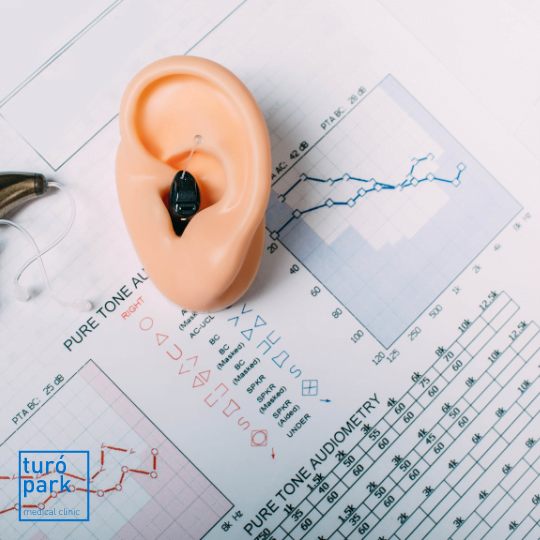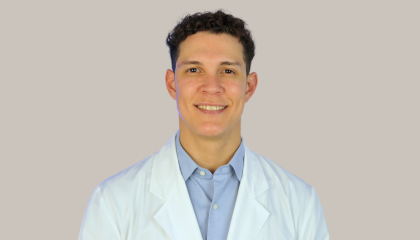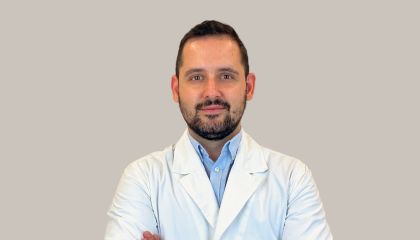Are you looking for an ENT specialist for hearing disorders in Barcelona?
Do you feel that your hearing is getting worse? Do you have ringing in your ears? Hearing disorders are diverse and varied pathologies that can greatly handicap everyday life if not treated properly.
The ear, nose and throat (ENT) specialists at our Barcelona medical clinic will provide you with a personalised treatment plan for your hearing problems.
Make an appointment now!
Fast track your treatment
To book an appointment or speak with one of our friendly team, please get in touch using the options below.

How can you prevent hearing problems?
Ear damage caused by noise can be avoided. Our specialists in otolaryngology advise you to take care of your hearing by respecting the following criteria:
- Use earplugs when you are exposed to loud sounds (music, concerts, etc.)
- Lower the volume of the TV or radio
- Avoid inserting small objects into your ears to clean them
- Perform a hearing test
What are the main hearing problems?
- Mild deafness (loss of 20 to 39 decibels): hearing loss of low and high-pitched noises.
- Average deafness: (loss of 41 to 70 decibels): this is the first major level of disability, forcing people to wear a hearing device.
- Severe deafness (loss of 70 to 90 decibels)
- Profound deafness (loss of more than 90 decibels): people cannot hear anything at all.
- Transmission deafness. It is distinguished by poor sound transmission at the level of the outer ear (external auditory canal) and the middle ear (eardrum composed of 3 ossicles - hammer, anvil and stirrup - allowing the transmission of information to inner ear). It is usually caused by a buildup of earwax, an ear infection or a perforated eardrum.
- Sensory deafness. It is characterized by damage to hair cells in the inner ear and in the nerve that transmits sound to the brain. The causes are multiple: old age, exposure to loud sounds, taking antibiotics, infections ...
- Mixed deafness. In this case, the auditory nerve and the inner ear are damaged.
ENT problems are common.
Don't let them ruin your life!

Management of hearing problems
Disabling, even painful, hearing problems are by no means trivial. By making an appointment with an otolaryngologist at Turó Park Clinics, you will benefit from a personalized diagnosis and treatment, following a well-oiled protocol.
The diagnosis
- The first step is to put a name on the pain that is eating you up. During the consultation, the ears are checked. Sometimes a simple earwax plug can be the cause of the pain. This autoscopic auscultation can also detect eardrum disease. But, if nothing is found, the ENT will require further investigation, as well as audiometry.
- Audiometry is a hearing assessment performed in a soundproof booth. The goal is to broadcast noises through headphones in order to assess the ear canal. This medical examination is used to diagnose and determine the intensity of deafness and is crucial for the prescription of prostheses.
Treatments
Once the problem is defined, it's time for therapy. Our otolaryngology service is equipped with the most advanced technologies, offering a wide range of treatments relieving your hearing problems.
Medication
In order to fight otitis, ENT recommends taking antibiotics for young children. It is also possible to administer corticosteroids intravenously or orally for sudden hearing loss, requiring urgent consultation.
Surgery
Certain situations require patients to undergo surgery.
- Installation of aerators in the event of serous otitis
- Tympanoplasty in case of perforation of the eardrum
- Functional surgery to "repair or replace ossicles"
- Placement of certain hearing aids (cochlear implants and brainstem implants)
The equipment
Hearing aids cannot restore complete hearing. However, they do amplify sound perception and improve the communication skills of people who observe damaged hearing.
Our English-speaking ENT specialists



Our answers to the most frequently asked questions about hearing problems
What is newborn hearing screening?
- A hearing screening test, offered before the newborn is discharged from the maternity hospital. This screening should help to determine whether further testing is necessary.
- Examinations carried out before the end of the infant's third month, when the screening examination could not take place or did not allow the child's hearing abilities to be assessed.
What are the risks of hearing loss?
How do you know if you have hearing problems?
- Do you have difficulty understanding proper names and numbers (address, telephone number) on the telephone?
- Do you find it difficult to follow a conversation in a noisy place?
- Do you find it difficult to follow a conversation when several people are talking at once?
- Do you often turn up the sound of the television and radio?
- Do you have to make an effort to follow a conversation?
- Do you sometimes make people repeat themselves?
- Do you have the impression that people are slurring their words?
- Do you sometimes answer out of turn because you have not understood the question?
- Do you have problems understanding children?
- At the cinema, do you find it difficult to understand foreign films in English?
- Do you find it difficult to hear the doorbell or the telephone ring?
- In the street, are you sometimes surprised by the arrival of a vehicle?
- Do you find it difficult to understand in the dark?
- In nature, do you find it difficult to hear the rustling of leaves or the singing of birds?